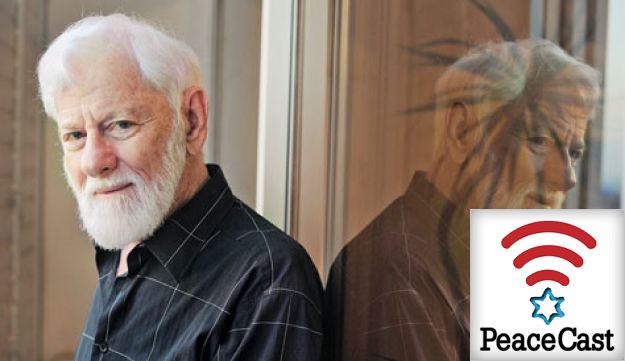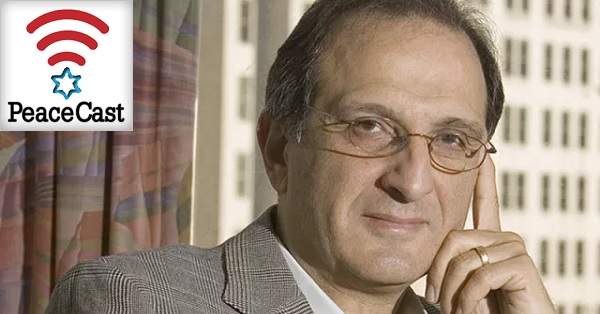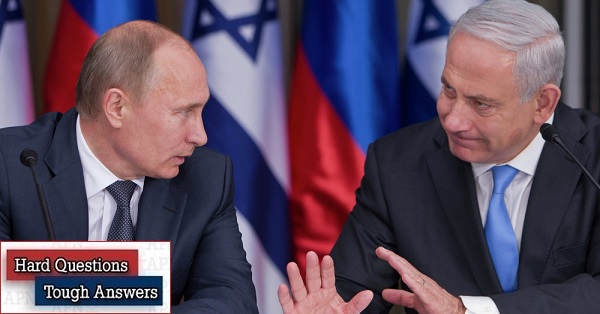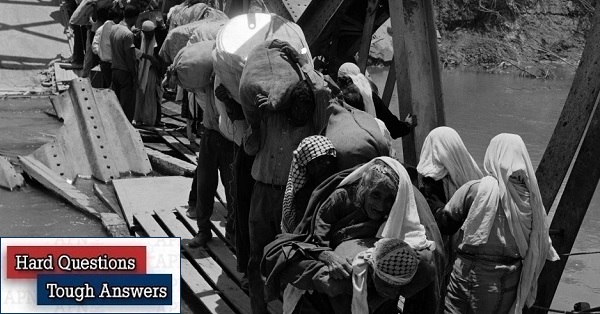Americans for Peace Now (APN) condemns the decision by the Trump administration to slash $200 million in aid appropriated by Congress for humanitarian projects in the West Bank and Gaza. According to a leaked report, this action will shortly be followed by a Trump administration announcement that it will cut support for programs of the United Nations Relief and Works Agency (UNRWA) in the West Bank, ask Israel to consider restricting UNRWA's activities there, and dramatically reduce the number of Palestinians the United States recognizes as refugees.
Yossi Alpher is an independent security analyst. He is the former director of the Jaffee Center for Strategic Studies at Tel Aviv University, a former senior official with the Mossad, and a former IDF intelligence officer. Views and positions expressed here are those of the writer, and do not necessarily represent APN's views and policy positions.
It is not tools — new organizations and programming — that are lacking. It is a willingness to listen to Diaspora Jews and change course from policies and attitudes which repel us.
As a whole, we hold a deep affinity for Israel. According to a 2018 American Jewish Committee survey, 70% of US Jews feel that “caring about Israel is a very important part of my being a Jew.” Similarly, 79% believe a “thriving State of Israel is vital for the long-term future of the Jewish people.” While we are loyal American citizens and (with few exceptions) have no intention of making Aliyah, many of us regard Israel as the state in which our national self-determination is realized. To a growing number, sadly, it feels like Israel is pushing us away.
If Israel cares to bridge the gap, what should it do?
Learn to Tolerate (and Appreciate) Critical Engagement
Through its 2017 Entry Law that denies entry to Israel by those who promote boycotts against Israel (defined to include boycotts against Israeli settlements in the Occupied Territories), Israel conveyed clearly that it has a political litmus test for admission to Israel.
The uptick in Shin Bet interrogations at Ben-Gurion Airport of American Jews who support Palestinian rights — including avowed Zionists like Peter Beinart and Meyer Koplow — shows that Israel is moving in the wrong direction.
While many Diaspora Jews maintain a love for Israel, we are increasingly shedding an Israel-right-or-wrong attitude in favor of critical engagement.
Israel can harass or even ban us. But if Israelis care about the Diaspora, we must be able to engage each other.
Work for Palestinian Statehood and an End to the Occupation
Lerner emphasizes listening to young people, and rightly so. But Israel must be prepared to hear them.
What young Jews joining J Street U chapters on campuses and starting organizations like IfNotNow in the US and Na’amod: British Jews Against the Occupation are saying is that their Jewish values and love for Israel inspire them to work for Palestinian human rights and an end to the Occupation.
While Israel is not solely to blame for lack of peace with Palestinians, as long as the Netanyahu government pushes toward annexing the West Bank and maintains a punitive closure of Gaza, the drift from Israel by young Diaspora Jews will continue.
Respect Non-Orthodox Streams of Judaism
Only 11% of American Jews classify themselves as Haredi or Modern Orthodox, with the rest identifying with different denominations or as “other.” An overwhelming majority of American Jews believe Israel should respect religious pluralism. Prime Minister Netanyahu’s cancelation of an agreement to create a mixed-gender prayer area adjacent to the Western Wall and the recent arrest of a Conservative rabbi in Haifa for performing a wedding exacerbate the Israel-Diaspora divide.
The decision by lawmakers to leave out of the new Nation-State Law language which would have acknowledged a role for world Jewry in Israel was yet another swipe at Diaspora Jews.
Taking steps toward recognition of religious pluralism would go a long way toward earning the good will of Diaspora Jews.
Affirm Social Justice and Democracy as Shared Values
Minority status is part and parcel of the Diaspora Jewish experience. Liberal democratic protections of minority rights and civil liberties are dear to American Jews and dovetail with the Judaism on which we were raised, which emphasizes social justice and tikkun olam.
The undeniable erosion of liberal democracy in Israel is raising alarm not only among political progressives but also by conservatives like Ron Lauder, a longtime Netanyahu supporter, who recently decried actions by members of Israel’s coalition government to “unintentionally undermine the covenant between Judaism and enlightenment.”
Disturbing efforts by the Israeli government to curtail freedom of speech regarding Israel on American college campuses in the name of combating Boycott, Divestment and Sanctions teach young Diaspora Jews that Israel’s growing illiberalism doesn’t stop at its border. And that does not bode well for future Diaspora-Jewish relations.
Stop Coddling Foreign Leaders Who Endanger Diaspora Jews
What message does it send to American Jews, the majority of whom disapprove of Donald Trump and feel our status is less secure since he became president, when Netanyahu lionizes Trump by comparing him to Cyrus the Great?
It is a similar message to the one received by Hungarian Jews when Netanyahu engages in an “illiberal bromance” with their Prime Minister Viktor Orban, who made anti-Semitic attacks on George Soros a feature of his re-election campaign.
While Israeli leaders should conduct foreign policy in Israel’s national interests, they should do so with an eye to the security and sensitivities of Diaspora Jewish communities.
Diaspora Jews care greatly about Israel and are distressed over the growing Israel-Diaspora rift. Some have come to the conclusion that Israel just doesn’t care about us. So it’s encouraging to find Israelis like Peter Lerner for whom ties to the Diaspora still matter a great deal.
The question is: Will Israel listen to our concerns and meet us halfway?
This article appeared first on the Forward on August 23, 2018
The Higher Planning Committee of the Civil Administration approved today (August 22, 2018) plans for 1,004
housing units in the settlements, 96% of which are in isolated settlements that Israel will likely
need to evacuate within the framework of a two-state agreement (according to the Geneva Initiative model). In
addition to the approval of the plans, and according to media reports, the government intends to promote hundreds
more housing units by issuing tenders, as well as promoting a future plan for some 300 units in Beit El.
Two plans for the legalization of illegal outposts, which were supposed to be discussed today, were removed from
the agenda following the instruction of the Ministry of Defense. One of them, "Haro'e Ha'ivri (Nofei Prat South),"
which was established illegally in 2015, is located just 1.5 km away from the Bedouin community of Khan Al-Ahmar
that the Israeli government plans to demolish.
Since President Trump was elected the government promoted plans for 10,536 units and tenders for 5,679 units in
West Bank settlements.
Professional investor and policy analyst Daniel J. Arbess is a financial expert focusing on macroeconomic, geopolitical and major industrial developments. He seems to be quite successful at that.
But last week he delved into a field that does not seem to be his forte. He wrote an article for the Wall Street Journal that presumes to give advice to young Palestinians. What’s Arbess’ advice? In his words, “Breaking free from their elders’ calcified thinking,” to “find the courage to move on” and integrate “into Israel’s thriving economy and culture of innovation.”
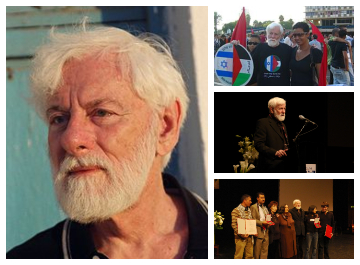
Israeli journalist and activist Anat Saragusti helps us remember and pay tribute to Uri Avnery, an icon of Israeli public life and of Israel’s peace movement.
Saragusti is a leading Israeli journalist and publicist. She was the CEO of Agenda, the Israeli Center for Strategic Communications. She was a news editor, reporter and photo journalist for several Israeli news outlets, as well as a peace activist, an active feminist, and a human rights advocate. She is a founding member of Ta Ha'Itonayot (a group of leading Israeli women in the media) and of Merkaz Media Nashim (the Gender Media Center).
Saragusti was a protege and long-time friend of Avnery.
Yossi Alpher is an independent security analyst. He is the former director of the Jaffee Center for Strategic Studies at Tel Aviv University, a former senior official with the Mossad, and a former IDF intelligence officer. Views and positions expressed here are those of the writer, and do not necessarily represent APN's views and policy positions.
Watch clips of APN Policy and Government Relations Director Debra Shushan from Israel i24 News "The Spin Room" from August 15, 2018. The discussion topic was the recent questioning and detaining of prominent Americans at Israeli ports of entry on political grounds.
"Alarm Bells"
"Gut-Wrenching"
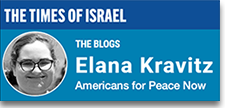 Elul, the Jewish month leading up to Rosh Hashanah and Yom Kippur, is a time of reflection,
soul-searching, and repentance. Even before we reach the holy days designated for new beginnings and atonement,
Jews prepare to undertake tshuva, asking forgiveness both from our peers and from God. Each day in Elul, except
for shabbat, we blow the shofar to awaken our slumbering consciences and reach out to God, who is held to be
remarkably close and receptive to prayers during these weeks of spiritual preparation.
Elul, the Jewish month leading up to Rosh Hashanah and Yom Kippur, is a time of reflection,
soul-searching, and repentance. Even before we reach the holy days designated for new beginnings and atonement,
Jews prepare to undertake tshuva, asking forgiveness both from our peers and from God. Each day in Elul, except
for shabbat, we blow the shofar to awaken our slumbering consciences and reach out to God, who is held to be
remarkably close and receptive to prayers during these weeks of spiritual preparation.
Yossi Alpher is an independent security analyst. He is the former director of the Jaffee Center for Strategic Studies at Tel Aviv University, a former senior official with the Mossad, and a former IDF intelligence officer. Views and positions expressed here are those of the writer, and do not necessarily represent APN's views and policy positions.


